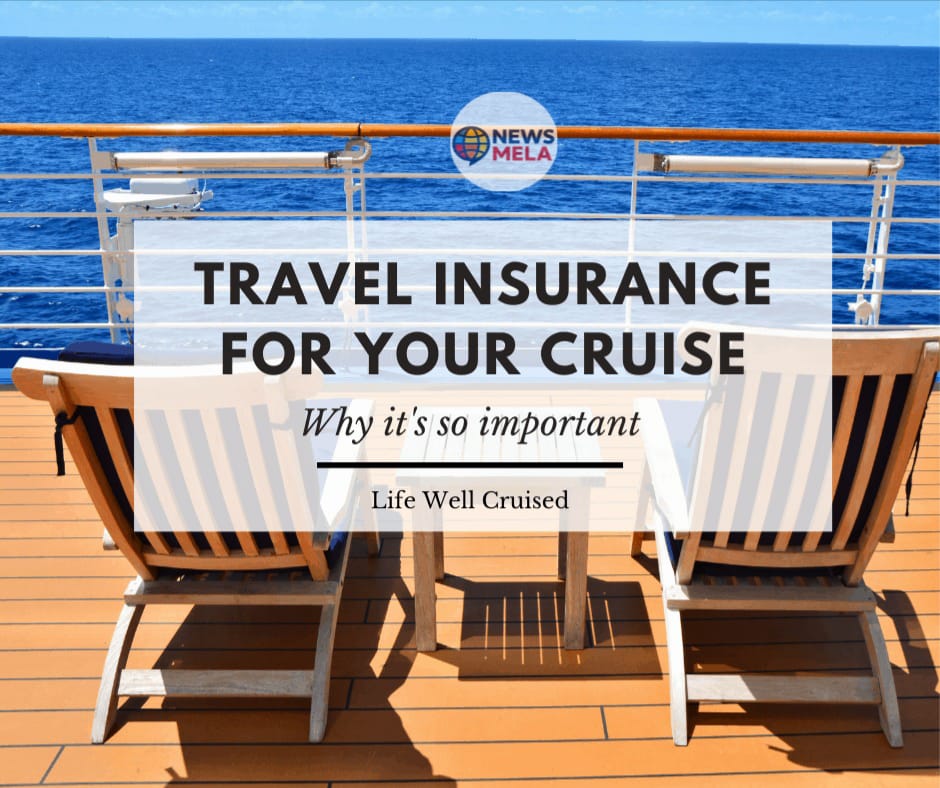Cruise vacations have always been associated with luxury, relaxation, and adventure. Whether it’s sailing across the Caribbean, exploring the Mediterranean, or embarking on an Alaskan voyage, cruises offer travelers a unique experience that combines travel, leisure, and entertainment in one floating paradise. However, like any form of travel, cruises also come with risks—such as trip cancellations, medical emergencies, missed connections, or lost luggage. That’s where cruise travel insurance becomes essential.
In this comprehensive guide, we will walk you through everything you need to know about cruise travel insurance: what it covers, why you need it, how to choose the right plan, and tips to ensure you’re fully protected for your next voyage.
Why Cruise Travel Insurance is Essential
The Nature of Cruise Travel
Cruises are different from typical land-based vacations. Once you set sail, you’re in international waters with limited access to medical facilities, strict timelines for departures, and numerous destinations along the way. A small delay or emergency can create a domino effect, leading to missed ports, extra costs, or even cutting your trip short.

Unexpected Risks at Sea
Cruise travel may seem glamorous, but risks include:
- Sudden illnesses while onboard.
- Missed departure flights leading to missed cruises.
- Lost or delayed baggage at port terminals.
- Weather-related disruptions like hurricanes.
- Cruise line bankruptcy or trip cancellations.
Insurance offers a safety net to protect your financial investment and peace of mind during such unforeseen situations.
What Cruise Travel Insurance Covers
Cruise travel insurance is usually more comprehensive than standard trip insurance. Here are the major areas of coverage:
Trip Cancellation and Interruption
If you need to cancel your cruise due to illness, family emergencies, or unexpected events, insurance reimburses you for prepaid, non-refundable expenses. Similarly, if your trip is interrupted mid-way, you can recover unused portions of your cruise cost.
Emergency Medical Coverage
Onboard medical facilities are limited and expensive. If you suffer a health issue that requires hospitalization or evacuation, insurance covers medical treatment costs, doctor visits, and emergency transportation to the nearest hospital.
Medical Evacuation and Repatriation
In severe cases, you may need to be airlifted from the cruise ship to the nearest medical facility. These costs can exceed tens of thousands of dollars. Insurance covers these expenses, ensuring you get the care you need without financial burden.
Baggage Protection
Lost, stolen, or delayed luggage can ruin your cruise experience. Insurance reimburses for lost belongings and provides allowances for essentials if your bags are delayed.
Missed Connections and Delays
Cruises have strict departure times. If your flight is delayed and you miss the ship, insurance can cover the costs of catching up with the cruise at the next port.
Weather and Natural Disasters
If bad weather or natural disasters force cruise cancellations or rerouting, insurance helps recover financial losses and additional accommodation or travel costs.
Types of Cruise Travel Insurance Plans
Not all insurance policies are created equal. Depending on your needs, you can choose from different plan types.
Single-Trip Cruise Insurance
Covers one specific cruise vacation. Ideal for travelers who only cruise occasionally.
Annual Multi-Trip Insurance
If you cruise or travel several times a year, an annual plan may save money while offering continuous protection.
Comprehensive Plans
These cover medical, cancellation, baggage, and evacuation together, making them the most popular choice for cruise travelers.
Medical-Only Plans
If you’re more concerned about health risks than trip disruptions, medical-only plans offer emergency coverage at sea.
Factors to Consider When Choosing Cruise Travel Insurance
Choosing the right policy depends on personal needs and the nature of your cruise.
Destination and Cruise Length
A short Caribbean cruise may require less coverage than a three-week Mediterranean or world cruise. Longer voyages usually need higher coverage limits.
Pre-Existing Medical Conditions
If you have medical issues, ensure your policy includes coverage for pre-existing conditions. Some insurers require you to purchase insurance within a set time frame after booking.
Age of Travelers
Premiums often increase with age. Seniors should compare policies carefully to ensure affordability and sufficient coverage.
Activity Coverage
If your cruise involves adventurous excursions like scuba diving or zip-lining, check if these activities are covered under your policy.
Cruise Line Coverage vs. Independent Coverage
Some cruise lines sell insurance directly, but independent providers often offer broader coverage and better flexibility.
Benefits of Buying Cruise Travel Insurance
Peace of Mind
The biggest benefit is knowing you’re financially protected against unexpected events.
Financial Protection
Cruises can cost thousands of dollars per person. Insurance ensures you don’t lose your investment if something goes wrong.
Access to Assistance Services
Most policies come with 24/7 assistance hotlines that help with emergencies, rebooking, or medical advice.
Common Exclusions in Cruise Travel Insurance
While insurance is comprehensive, there are limitations. Always read the fine print.
Pre-Existing Conditions
Not all policies cover them unless declared and approved beforehand.

Risky Activities
Certain adventurous activities may not be covered unless you pay extra.
Alcohol-Related Incidents
Claims may be denied if incidents occur under the influence of alcohol or drugs.
Travel Against Government Advisories
If you cruise to destinations under government travel warnings, your policy may not apply.
Tips for Buying Cruise Travel Insurance
Buy Early
Purchase insurance soon after booking your cruise to maximize coverage, especially for pre-existing conditions.
Compare Multiple Providers
Check both cruise line-offered insurance and independent providers to find the best fit.
Read the Policy Carefully
Understand coverage limits, exclusions, and claim procedures before finalizing.
Keep Documentation
Save all receipts, tickets, and medical reports in case you need to file a claim.
Consider “Cancel for Any Reason” Coverage
This optional add-on allows maximum flexibility to cancel your cruise for personal reasons not covered in standard policies.
How to File a Claim Successfully
Filing an insurance claim requires proper steps and documentation.
Step 1: Notify Your Insurer Immediately
As soon as an incident occurs, contact your insurance provider.
Step 2: Gather Documentation
Collect medical records, receipts, police reports (if applicable), and any other supporting documents.
Step 3: Complete Claim Forms Accurately
Fill in all required details and attach supporting evidence.
Step 4: Follow Up Regularly
Stay in touch with the insurer to ensure timely processing of your claim.
Real-Life Examples of Cruise Travel Insurance in Action
Example 1: Medical Emergency in the Caribbean
A traveler suffered a heart attack onboard. Insurance covered evacuation to a hospital in Miami and medical bills worth $50,000.
Example 2: Missed Departure Due to Flight Delay
A couple missed their Mediterranean cruise after their flight was delayed. Insurance covered new flights and hotel stays to catch the ship at the next port.
Example 3: Lost Luggage at Port
A family’s luggage was lost during embarkation. Insurance reimbursed them for clothing and essentials, saving the trip.
Cruise Travel Insurance vs. Regular Travel Insurance
Cruise-specific policies are often more tailored than general travel insurance.
Cruise Insurance Advantages
- Covers missed port connections.
- Provides higher medical evacuation coverage.
- Includes protection for cruise-specific activities.
Regular Travel Insurance Advantages
- More flexible for multi-destination land-based trips.
- Often cheaper if cruise-specific risks aren’t a concern.
Cost of Cruise Travel Insurance
Average Price Range
Typically 5–10% of the total cruise cost. For a $5,000 cruise, expect to pay $250–$500 for insurance.
Factors Affecting Cost
- Traveler age.
- Destination.
- Cruise duration.
- Coverage amount and add-ons.
Do You Really Need Cruise Travel Insurance?

Some travelers wonder if cruise insurance is necessary. Here’s the reality:
- If you’re traveling domestically for a short trip and have strong health coverage, you may take the risk.
- For international or long cruises, the risks are higher, and insurance becomes highly recommended.
- Even frequent travelers often choose at least medical evacuation coverage, given the high costs of emergencies at sea.
Final Thoughts
Cruise vacations are meant to be joyful, stress-free experiences. However, the unpredictable nature of travel—especially at sea—makes cruise travel insurance a smart investment. From medical emergencies to lost luggage, missed connections, and weather disruptions, the right insurance plan ensures your dream vacation doesn’t turn into a financial nightmare.
When planning your next voyage, take the time to compare policies, assess your personal needs, and choose the right level of protection. With comprehensive coverage, you can truly relax and enjoy every moment of your cruise adventure.






Leave a Reply